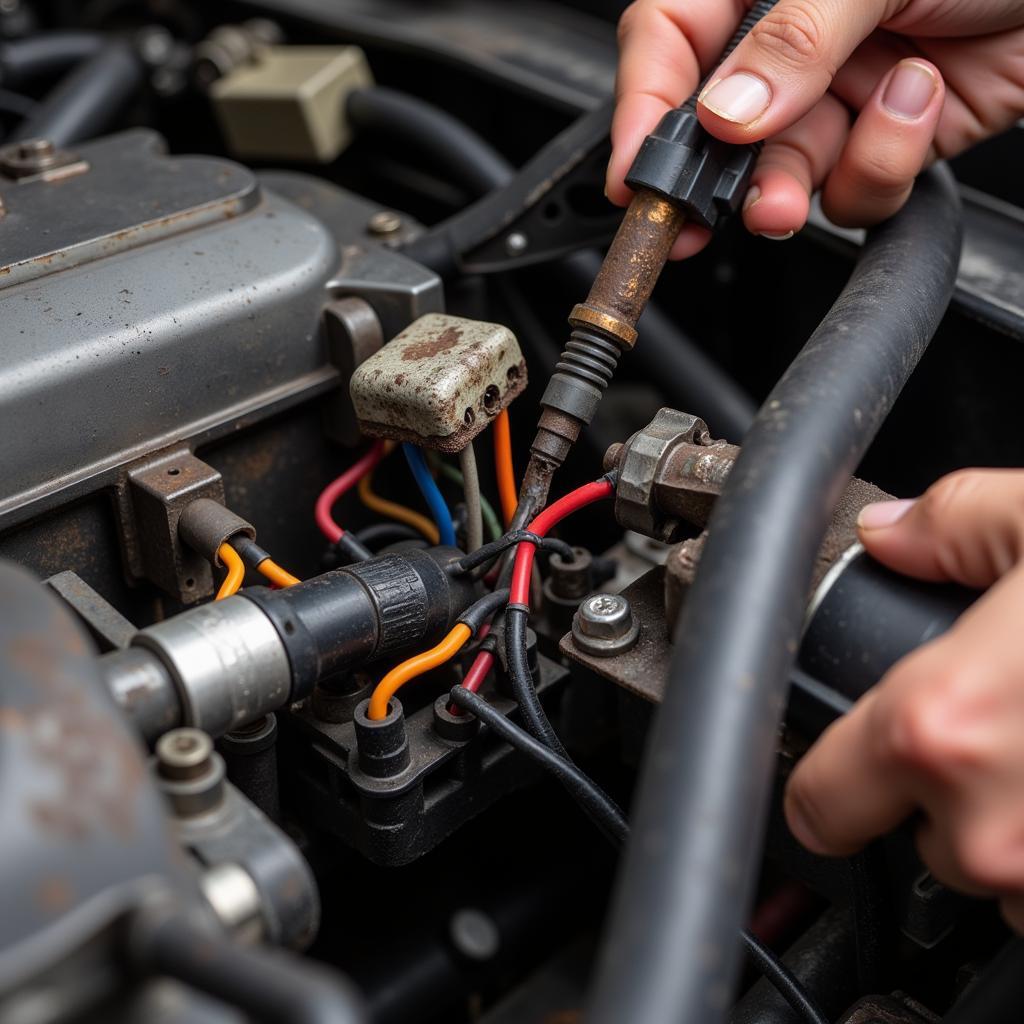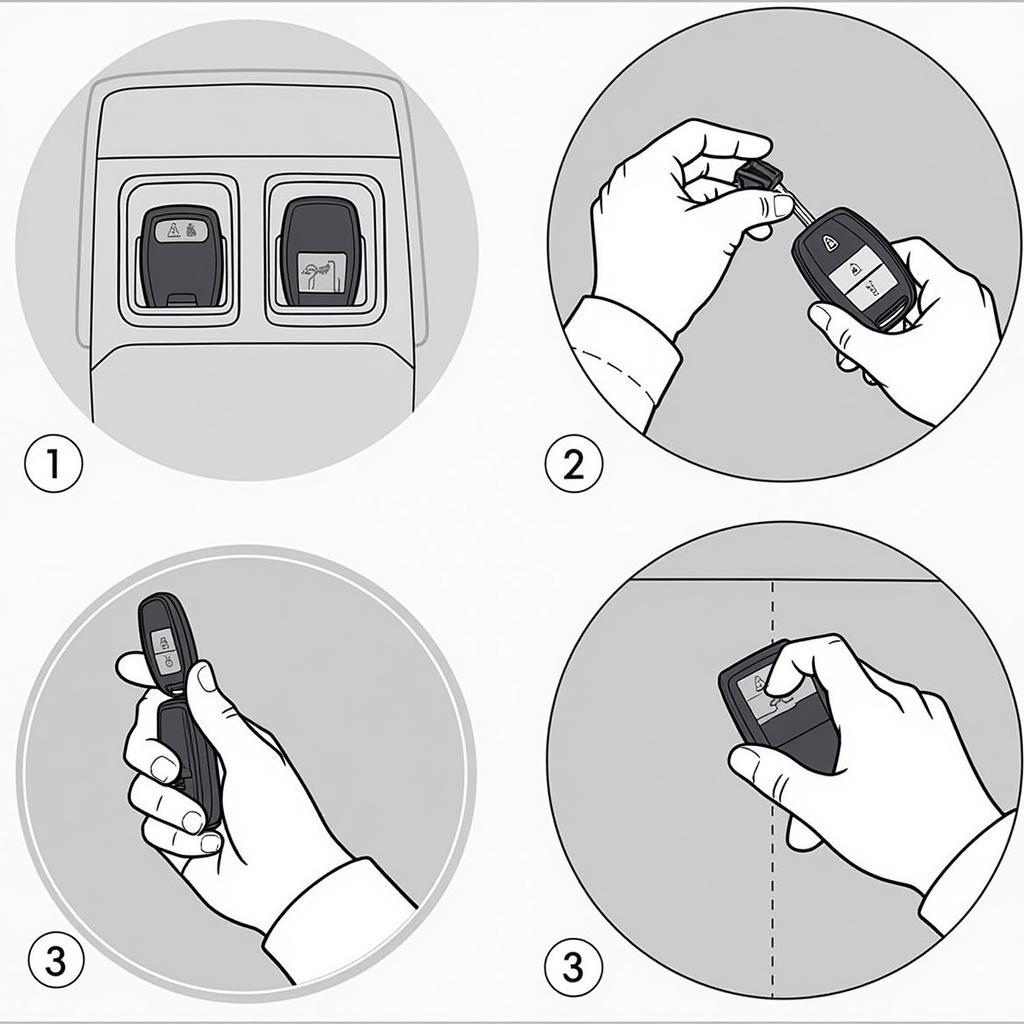Your car won’t crank, but the battery is good? This is a frustrating situation, but a surprisingly common one. Don’t worry, you’re not alone. This comprehensive guide will walk you through the potential causes and offer solutions to get your car started again. We’ll explore everything from simple checks to more complex diagnostic procedures, empowering you to troubleshoot the problem effectively.
Similar to cases where a car wont start not battery, there might be other underlying issues affecting your vehicle’s starting system.
Common Reasons Why Your Car Won’t Crank With a Good Battery
While a dead battery is the most frequent culprit for a car not starting, a good battery doesn’t rule out electrical issues. Several other components can prevent your car from cranking, even with a fully charged battery. These include:
- Faulty starter: The starter motor is responsible for cranking the engine. A bad starter solenoid or worn-out motor brushes can prevent it from functioning.
- Ignition system problems: Issues with the ignition switch, ignition coil, or other ignition components can disrupt the spark needed to ignite the fuel.
- Fuel system issues: A clogged fuel filter, faulty fuel pump, or other fuel delivery problems can starve the engine of fuel, preventing it from starting.
- Wiring problems: Corroded or loose connections in the wiring harness can interrupt the flow of electricity to the starter and other essential components.
- Security system malfunction: In some cases, a malfunctioning anti-theft system can prevent the engine from cranking.
- Neutral safety switch: This switch prevents the car from starting unless it’s in park or neutral. A faulty switch can mimic a no-crank condition.
Diagnosing a No-Crank Condition With a Good Battery
Before you start replacing parts, it’s crucial to diagnose the problem accurately. Here’s a step-by-step guide to help you pinpoint the cause:
- Verify battery voltage: Even if the battery seems good, double-check its voltage with a multimeter. It should read around 12.6 volts. A lower reading indicates a weak battery, despite it appearing charged.
- Check the starter: Tap the starter motor lightly with a hammer while someone tries to start the car. If the car cranks, the starter is likely the culprit.
- Inspect the ignition switch: Turn the key to the “on” position and check if the dashboard lights illuminate. If not, the ignition switch might be faulty.
- Test the fuel pump: Listen for the fuel pump’s whirring sound when you turn the key to the “on” position. If you don’t hear it, the fuel pump might be the issue.
- Examine wiring connections: Visually inspect all wiring connections related to the starting system for corrosion or looseness.
 Checking Wiring Connections in Car for No-Crank Issue
Checking Wiring Connections in Car for No-Crank Issue
Like situations when a car will not start but battery is good, a systematic diagnostic approach is essential for identifying the root cause.
What to Do When Your Car Clicks But Won’t Start?
Sometimes, instead of cranking, you’ll hear a clicking sound when you try to start the car. This usually indicates a weak battery or a bad starter solenoid. If you’ve already verified the battery is good, the starter is the next likely culprit.
“In my experience, a clicking noise when trying to start a car often points to a faulty starter solenoid,” says automotive expert, Michael Stevenson. “The solenoid acts as a relay, engaging the starter motor. A weak or failing solenoid can’t supply the necessary power to crank the engine.”
As with the case of a car is making a clicking noise and wont start, it’s essential to rule out a weak battery before focusing on other components.
Situations where a remote car starter draining battery can also be relevant, highlighting the importance of checking the battery and related electrical systems.
Cold weather can exacerbate existing problems, similar to a car battery not starting in cold weather. Ensure your battery and charging system are in optimal condition, especially during colder months.
Conclusion
A car that won’t crank with a good battery can be a puzzle, but by systematically checking the key components and following the diagnostic steps outlined above, you can often identify the root cause. Remember, a good battery doesn’t guarantee a starting car. Addressing these potential issues proactively can save you time, money, and frustration on the road. If you’re unsure about any step, consulting a qualified mechanic is always recommended.

